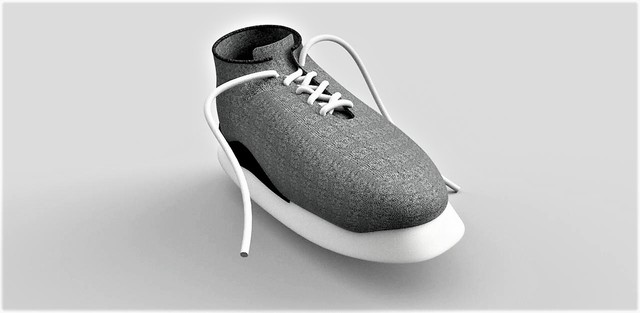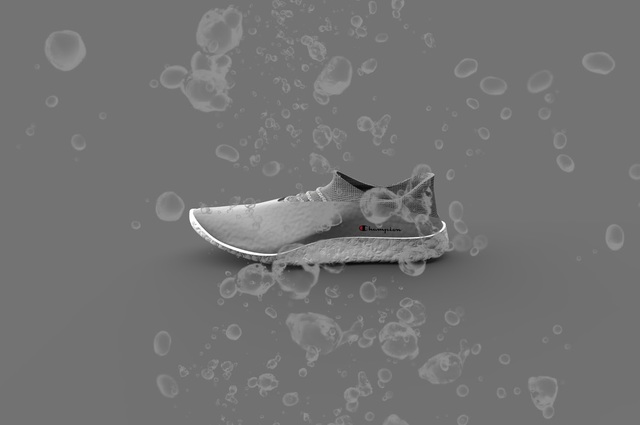There are times when you think you have an idea that will work. Unfortunately, most of those supposedly brilliant concepts exist only in your mind. They never see the light of day for various reasons, including lack of funding and inadequate resources.
Very rarely will a product design service come across an idea for a product that seems to have all the likelihood of coming to reality. This product sells in large numbers and is relatively easy to manufacture thanks to an abundance of material. Moreover, it is quite affordable, and there seems to be an endless demand for it. One type of product that fits this description well is footwear.
Considering everyone needs at least a pair of both, they have billions of potential buyers. Of course, there is the assumption that your footwear is popular enough to hit store shelves in many countries all around the world. That is not impossible, as you have the power of the Internet on your side to launch your marketing campaign.
Before you can begin production, you have to go through the essential early steps of product development. You can get help with 3D modeling services to build a three-dimension version of the idea or a prototype.

Without a prototype, it’s difficult to know whether the product will work as intended in the real-world. You may also miss out on some desirable design elements you can otherwise implement before selling the footwear. As a result, the product turns into a miserable failure among the competition.
Using the concept born in your mind as the starting point, the actual work of exploring design possibilities begins. This is where your abilities as an invention design service, shoe prototype designer, and marketer come into play. While creating a prototype may involve trial-and-error in various stages, it is a rewarding part of product development.
 Table of Contents
Table of Contents
Developing Your Prototype
Now that you know the importance of creating a prototype for product development, it is wise to take the time and think carefully about how you should get the job done. You can either build the prototype by yourself or hire professionals to do it. Sometimes it is also possible to engage in both methods, although at different stages of the process.
Build It Yourself
There is nothing wrong with a hand-built prototype of a sneaker. Start by drawing the design on a piece of paper; make a rough sketch and improve it as you go. At this point, there are no rules in designing. Look around the house and use any material to build the basic shape first.
RELATED: 10 steps for freelance designers to create and manufacture a new product
A sneaker is comprised of many different parts glued and stitched together. There is also a combination of materials such as rubber for the sole, leather for the toe cap, metal for the eyelets, fabric for the lace, and so on. When choosing a material for a specific part, try to keep an open-minded alternative you haven’t considered initially with the initial concept.
Some materials like Lycra and gel are not always available, so you may want to use a combination of more straightforward options, including leathers, textiles, rubber, foam, and plastic. In case you don’t have the right tools for the job, it is best to have it done by professionals, or more specifically, freelance product engineering services.
Freelance Prototype Developer
Once you’ve built a prototype as far as you reasonably could manage, it is now time to consider hiring professionals to take the design to the next level. You don’t actually have to bring a rudimentary prototype at all. Most (if not all) freelance prototype developers can start working with a rough sketch on paper or a detailed description of the intended design.
If you do have to bring a physical model, but you don’t have all the specialty tools required to make a sneaker, hire a handyman or a student from a design college. At this stage, the sneaker doesn’t really need to be functional. If it looks like a sneaker, you can use as a tool to help explain the idea to a professional prototype developer.
There are hundreds of shoe and sneaker designers who work freelance and market their services online. Also, look around on social media and product design forums to get more information on where to find the freelance shoe and sneaker designers with the right skill set.
How Freelancers Build Prototypes
Every freelancer has their own methods and approach to creating a prototype, despite having the same end goal: making a physical model of your sneaker design that matches (or is better than) your specifications. Some may draw the design first on paper, while others go directly to CAD software to make a digital three-dimensional version of the sneaker.
Since the end result is a physical product, you need a fashion design service willing to go the extra mile and manufacture a pair or two of the final version of the footwear for testing. For the sake of budget efficiency, avoid hiring separate teams to work on the digital 3D object, and build the actual artifact. Having the same team to handle both tasks will simplify the process a great deal.

As mentioned earlier, footwear products may consist of many parts made of various materials. Each part probably needs to be manufactured separately because it uses a certain material different from the others. Therefore, the process of creating the prototype requires at least a small factory filled with an assortment of custom manufacturing equipment. In any case, the facility should be able to create a full working version of your design for real-world testing.
There are also rapid prototyping services, in which the entire footwear is 3D printed. In the rapid prototyping process, the design is first drawn digitally and then sent to a 3D printing machine. This can save a lot of money in product development, although you’re pretty limited in terms of materials. For example, you cannot 3D print leather, at least not yet.
That being said, 3D printing is a good idea to see whether the overall shape of the footwear meets your specification before taking it to a manufacturing facility. Some companies actually sell 3D printed sneakers including brands like Adidas and Reebok.
No matter the actual method used, freelance shoe and sneaker designers go through the typical prototyping process as follows:
- Problem Identification: Based on the market research of your target demographic, the freelancers figure out the list of problems your potential customers face with footwear products they already own.
- Solution Planning: The design process must revolve around providing a solution to the problems identified during the previous step.
- Brainstorming: Freelancers take you onboard during the discussion to decide which specific issues to prioritize. Your design (and prototype) must offer something to help customers overcome their current problems. This is where the team discovers the uniqueness of your design among competitors in the market.
- Prototyping: After making some refinements to the initial idea in accordance with the results from previous steps, the actual prototyping happens. Concept transforms into a physical product.
- Testing: Think of the raw sketches as a product in its alpha stage, while the prototype is the beta version. Freelance footwear designers take the product on a test run to see how well-built it is and whether it does provide the intended solution. Furthermore, they analyze whether the product is competitive enough.
- Refinement: In case there is room for improvement, the team will create a more improved version of the current prototype for more testing.
A good prototype is an accurate representation of the final design. In addition to being a perfect example of a full working version, the prototype also predetermines the resources you need for larger-scale production including materials, manufacturing timetable, distribution, price points, and profitability.
Design Improvements
One of the greatest benefits of hiring a freelance shoe and sneaker designer to build a prototype is garnering the potential to improve the initial design. Having more people, especially professionals, working on the footwear means taking a wider perspective to put into the development process. A professional team will notice possible flaws in your initial design you previously were unaware of, allowing for an early refinement for a smoother development.
RELATED: 9 design and engineering tips for reducing manufacturing costs on new product designs and prototypes
An external party usually has a more realistic view of your product, so every single change made is based on objective analysis. If you want, the freelance consumer product designer can even build multiple prototypes of the same product, with slight variations in each version. When all variants are out under the same tests, it is easy to see which one comes out on top.
Prototyping has always been an integral part of product development, regardless of what the product is. If deployed properly and handled by reputable professionals, it can yield significant savings in cost, time, and financial risk simply because a prototype helps you see the true potential of a product and fix mistakes before it reaches the real manufacturing stage.
Cad Crowd’s Freelance Product Designers at Your Disposal
At Cad Crowd, we have a network of professional freelance product designers at your disposal. If you’d like to connect with us, get a free quote today.
